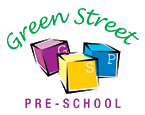Nurturing Unique Voices: Green Street Preschool's Inclusive Philosophy
PHILOSOPHY OF
Green Street Preschool
NQS: Quality Area 7 Governance and leadership
We believe each child is unique and brings a unique culture to the centre. By valuing this uniqueness, children will feel valued and confident to learn in a manner that is culturally responsive to each child. We are committed to developing positive and inclusive relationships with peers, families, the community, and the environment to establish a collaborative learning process that identifies Aboriginal and Torres Strait Islander perspectives. We acknowledge the traditional Murramarang owners and custodians of Yuin country and their continuing connection to the land, culture and community. We pay our respects to elders past, present, and future.
We believe in holding high expectations for children’s learning and development in an environment free of fear, judgment, and bias that supports children’s being active participants in their learning and play.
We believe children can master new learning with a nurturing, stimulating, supportive environment where secure and respectful relationships are fostered. Therefore, we are committed to developing a curriculum from the Early Years Learning Framework (EYLF v2.0) and current program initiatives.
We recognise the importance of children being exposed to natural environments where they can discover, be messy, and take risks as they learn and develop an awareness and appreciation for the world they live. When children have opportunities to learn about and participate in sustainability, we build a greener future for our community. Using the Reggio approach, educators promote children’s participation through open communication, listening and the recognition of others. We appreciate that children are co-constructors of knowledge and can guide their learning.
Implementation
In Relation To Families
NQS: Quality Area 6 Collaborative partnerships with families and communities
EYLF: Outcome 5 children are effective communicators
We will welcome all families warmly to our service and strive to build strong, respectful relationships that foster family values, beliefs and cultures. We will encourage community involvement, both internally and externally, strengthening respect and understanding for our local people’s area and culture, the traditional Murramarang owners and custodians of Yuin country. We will recognise the valuable source of knowledge the family holds about the child and their culture and encourage each family to participate actively in the service. We will maintain an open-door policy so families can visit children anytime and share skills and interests.
We will maintain open communication with families to exchange information and knowledge, enhancing children’s development and interests. The service will implement a valid and current means of public broadcasting through varying forms of technology. It will implement quality improvement practices to ensure all families have straightforward access to relevant information and can easily contribute to each facet of the operation. We highly value inclusion and safeguarding partnerships with other professionals associated with Early Child Intervention (ECI) and family support services for children and their families. We aim to collaborate to achieve the best possible outcome for the future of our children and their families.
In Relation To Children
NQS: Quality Area 5 Relationships with Children, Quality area 4 Staffing arrangements
EYLF: Outcome 1 Children have a strong sense of identity, Outcome 3 Children have a strong sense of wellbeing
Each child is considered individually in their own right, learning and growing in their manner and time. Therefore, we highly value inclusion support and cater to individual learning abilities by providing appropriate developmental resources, strategies and support. We will build a positive relationship with each child to help them become confident in the centre environment and create their learning pattern. We will place a significant focus on children’s health and educate children in taking responsibility for their health and wellbeing, establishing lifelong values and habits. We will offer daily routines and transitions that enable children to familiarise themselves with day-to-day experiences while remaining flexible to incorporate variation and build upon children’s interests.
We will ensure that all children have the opportunity to enhance their development in physical, personal, social, emotional and spiritual wellbeing and cognitive aspects of learning through a wide variety of experiences both indoors and outdoors and expanding and strengthening guidance. We will ensure that every child’s culture, ability, and interests are essential for learning. In addition, we will ensure that children are given opportunities to be exposed to each other’s cultures, abilities and interests, reinforcing an understanding and respect for diversity. We will support children in the ongoing changes of their world through opportunities for science, technology, engineering, art and math investigation. We will look at each child holistically and inclusively as they learn through play. We will encourage children to develop independence/self-help skills in preparation for future schooling.
In Relation To Environment
NQS: Quality Area 2 Children's Health and Safety, Quality Area 3 Physical environment
EYLF: Outcome 2 Children are connected with and contribute to their world
The environment is a valuable teacher, and therefore, our centre will be organised and adequately resourced in such a way as to invite children’s participation and exploration. Educators will use visual aids within the learning environment to support children participating in the routine and program and build confidence within the environment, concentrating on ongoing learning and reflective practice.
The indoor environment will be arranged to accommodate a variety of learning spaces that encourage independence, investigation, and inquiry and reflect families’ beliefs and values. Such spaces include home corners, STEM, calm, creative, and construction spaces.
The outdoor environment is essential for children to learn respect and care for living plants and animals. Learning from the natural environment and engaging with raw materials allows children to experience the ever-changing world in which they live and will be considered an extension of the indoors. Therefore, the outdoor setup will include fine motor and art and crafts activities. Sustainability practices will be modelled daily with opportunities for children to explore and be involved with sustainability, building knowledge and respect for their natural and constructed environments.
The educators will ensure that the environment is safe, secure, inclusive and stimulating for all children, providing appropriately shaded and comfortable areas for play. Educators will monitor appropriate outdoor playtimes according to our SunSmart policy and adjust the daily routine to accommodate these changes.
In Relation To Program
NQS: Quality Area 1 Education program and practice
EYLF: Outcome 4 Children are confident and involved learners
The program is based on the principles of the Early Years Learning Framework (EYLF v2.0) and, therefore, is child-initiated and follows the children’s needs, strengths, and interests across the learning outcomes. The program will be shared with all families and children and open to all contributions through daily interactions, communications, and digital platforms like Xplor.
The program will reflect the importance of mindfulness in our currently busy society with opportunities for yoga, meditation, breathing exercises, rest, reflective stories and calm spaces. The service will reflect the Government’s Munch and Move program daily with opportunities for children to develop and strengthen fundamental movement skills and explore healthy lifestyle choices. The Early Learning Languages Australia (ELLA) program will be provided to children the year before school to build a further understanding of cultural diversity and early literacy, numeracy, and technology skills.
The inclusion of abilities and cultures will be reflected daily in experiences supporting children’s learning and exposure to various backgrounds and contexts. We have been a registered Inclusion Support Service since 2017, securing the best future for all children in our care. We will share opportunities to reflect on the original owners of this land with a daily welcome to the country. Each child’s right to feel special and be heard will be respected through opportunities to share their thoughts using our sharing stick and positive mantra.
Educators are deliberate and thoughtful in their collaborative teamwork, constructing decisions and actions as they document, extend and observe children to develop experiences that will challenge children’s thinking and facilitate and broaden their learning in a supportive and inclusive manner. The program provides visuals and a clear outline of why we do what we do (Pedagogy). Educators will develop a profile of each child on a digital platform called ‘Xplor’, which consists of input from families and other primary caregivers. Individual programming will include long and short-term objectives, evaluations, photographic and written observations, and group programming. Child portfolios will focus on specific developmental areas and collations of children’s work, reflecting the child’s interactions within the program. A printed copy of each child’s portfolio can be accessed at the service sign-in area. In addition, families are encouraged to view the child’s portfolio at any time.
Reviewed and amended 14-2-24

